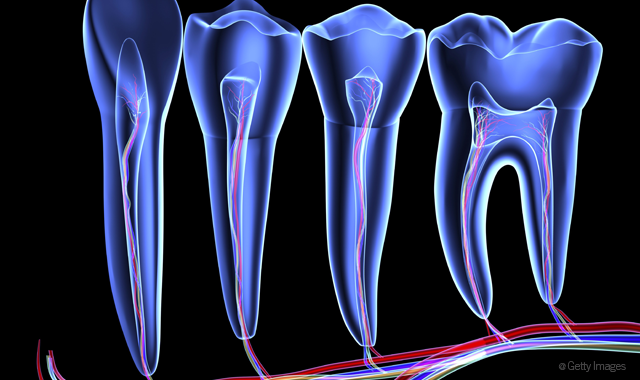New research finds way to eliminate pain caused by tooth decay
With the holidays-and all of the accompanying sweet treats seemingly destined to cause dental caries-right around the corner, researchers at the University of California have made a timely discovery that may lessen or even eradicate pain caused by tooth decay.

With the holidays-and all of the accompanying sweet treats seemingly destined to cause dental caries-right around the corner, researchers at the University of Southern California have made a timely discovery that may lessen or even eradicate pain caused by tooth decay.
Once tooth decay has weakened or destroyed enamel, the damage is permanent, as enamel cannot rejuvenate. Researchers at the Herman Ostrow School of Dentistry of USC set out to determine whether or not there was any way to regenerate enamel, thus preventing the development of cavities.
More emerging research: New study finds troubling rates of dental implant complications
In conjunction with other researchers, Janet Moradian-Oldak, a professor of dentistry and USC, and Sauma Prajapati, also of USC, discovered that an enzyme found in teeth called matrix metalloproteinase-20 could break up amelogenin proteins. These proteins are responsible for the formation of enamel crystals. Chopping up the proteins creates space for new materials to be introduced. This would allow holes and cracks to be filled and repaired.
“MMP-20 is released at a very early stage of enamel formation,” said Moradian-Oldak in a recent press release. “ MMP-20 chops up proteins during the crystallization of enamel. Together with other enzymes, it gets rid of ‘sludge’ so the enamel-making cells in the body can add more mineral and make enamel.”
Related reading: New study finds human tooth enamel development is linked to weaning
“We present a novel functional mechanism of MMP-20, specifically prevention of unwanted organic material entrapped in the forming enamel crystals, which occurs as a result of precise amelogenin cleavage,” researchers stated in the study.
Continue to page two for more...
With that in mind, researchers also determined that amelogenin-chitosan hydrogel could help repair early tooth decay by “growing an enamel-like layer that reduces lesions by up to 70 percent.”
“After pH cycling and treatment with amelogenin-chitosan hydrogel, a synthetic layer composed of oriented apatite crystals was formed on the eroded enamel surfaces. The results clearly demonstrate that the … hydrogel is effective at the restoration of erosive and carious lesions,” concluded the study.
More emerging research: New discovery can prevent dental implant infections
While many products such as toothpastes or mouthwashes promote remineralization of enamel, they just serve as stopgaps and don’t actually solve the underlying problem. Although they reduce sensitivity, they are essentially just Band-Aids that can’t eliminate caries. The hydrogel actually fills in the holes with an enamel-like material, eliminating the threat of more cavities in the same location. By creating oriented crystals, the hydrogel reduced the depth of carious lesions 50-70 percent within the first seven days of application.
Going forward, researchers hope to tweak the hydrogel recipe to create an even stronger enamel substitute.
“We create a protective cover on enamel,” Moradian-Oldak said. “We restore the structure of enamel, and it will prevent decay from progressing.”
Trending article: Study finds nanodiamonds might prevent tooth loss after root canals
While the FDA hasn’t yet approved any variety of enamel-growing gel, Moradian-Oldak is optimistic that eventually hydrogel-saturdated teeth strips or mouth guards will be approved as vehicles for administering the hydrogel. The hydrogel is currently in pre-clinical trials at USC.
The initial MMP-20 research, entitled “Matrix metalloproteinase-20 mediates dental enamel biomineralization by preventing protein occlusion inside apatite crystals,” was featured in the journal Biomaterials. The hydrogel study, “Efficacy of emelogenin-chitosan hydrogel in biomimetic repair of human enamel in pH-cycling systems,” was published in the Journal of Biomedical Engineering and Informatics.